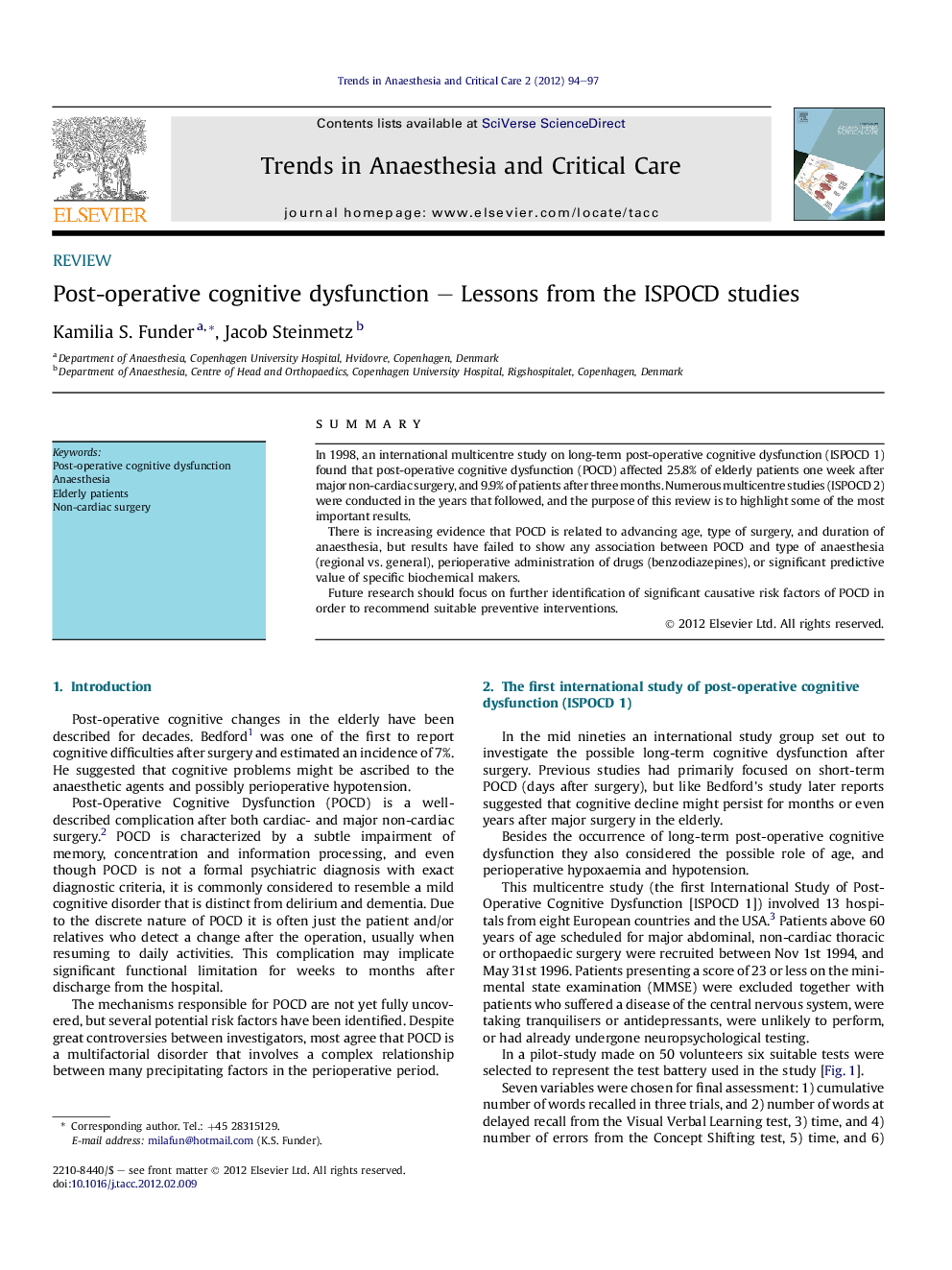| Article ID | Journal | Published Year | Pages | File Type |
|---|---|---|---|---|
| 2772634 | Trends in Anaesthesia and Critical Care | 2012 | 4 Pages |
SummaryIn 1998, an international multicentre study on long-term post-operative cognitive dysfunction (ISPOCD 1) found that post-operative cognitive dysfunction (POCD) affected 25.8% of elderly patients one week after major non-cardiac surgery, and 9.9% of patients after three months. Numerous multicentre studies (ISPOCD 2) were conducted in the years that followed, and the purpose of this review is to highlight some of the most important results.There is increasing evidence that POCD is related to advancing age, type of surgery, and duration of anaesthesia, but results have failed to show any association between POCD and type of anaesthesia (regional vs. general), perioperative administration of drugs (benzodiazepines), or significant predictive value of specific biochemical makers.Future research should focus on further identification of significant causative risk factors of POCD in order to recommend suitable preventive interventions.
